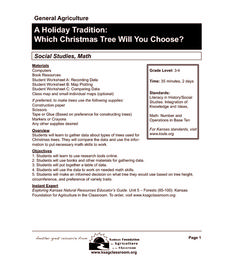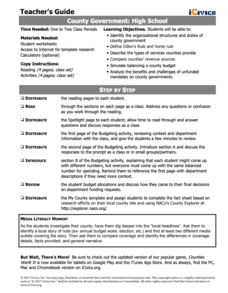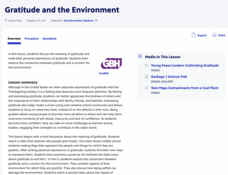Museum of Tolerance
Can It Happen in America?: Taking Social Action
Class members investigate the Jim Crow Laws, Executive Order 9066, the Chinese Exclusion Act, and the Indian Removal Act to gather information about not only the challenges encountered by diverse groups of Americans, but their...
Museum of Tolerance
Cultural Research Activity
Class members explore cultural diversity through a variety of texts that showcase the importance of traditions. Then, they interview their family members to research their own cultural background and write their findings on quilt pieces....
Museum of Tolerance
Citizenship Then and Now: Comparing Ancient Rome and Contemporary American Society
Class members research citizenship in Ancient Rome and in the United States and use the provided graphic organizers to compare the rights and responsibilities of citizens in these two democracies.
Museum of Tolerance
The Role of Citizens in a Participatory Democracy
Groups research participatory democracies and compare the role and rights of citizens in ancient history with those in recent U.S. history. Guided by a series of questions, individuals compose a persuasive essay in which they discuss the...
Channel Islands Film
Arlington Springs Man: Lesson Plan 1
Learning to craft quality questions is a skill that can be taught. Class members use the Question Formulation Technique to learn how to create and refine both closed-ended and open-ended questions. They then view West of the West's...
Curated OER
Fracking: Positive or Negative Impact?
Your teenagers may have heard of fracking, but do they really know what it is? And could they debate the benefits and risks? Educate your environmental science class with a lesson about hydraulic fracturing, non-renewable energy sources,...
Agriculture in the Classroom
A Holiday Tradition: Which Christmas Tree Will You Choose?
Different varieties of Christmas trees provide an interesting way to combine social studies, science, math, and technology. Class members not only research the history of the Christmas tree holiday tradition, they compare and contrast...
NOAA
I Can't Breathe!
The Gulf of Mexico dead zone, an area of low oxygen that kills marine life, costs the United States $82 million every year. Young scientists research anoxic ocean environments then come up with a hypothesis for the cause of the Gulf of...
iCivics
County Government: High School
Balancing a budget—the bane of many people's existence! Yet, its' something that must be done, especially in government systems. The resource, fourth in a seven-part series exploring local government, focuses on various exercises that...
iCivics
Municipal Government: High School
Municipal government takes on many roles, not just the ones we are used to hearing about such as Parks and Recreation. Scholars delve into the topic to get a grasp on how the government system functions. They participate in readings,...
Benjamin Franklin Tercentenary
Let’s Throw an Electric Science Party!
Are you looking for a shockingly good lesson? Check out one that has middle schoolers recreate four of Benjamin Franklin's experiments. Groups investigate, observe, and draw conclusions about static electricity and electrical current....
Constitutional Rights Foundation
Guest-Worker Program
The U.S. Guest-Worker Program and the H-2A visa are the focus of a social studies activity. First, class members assume the role of advisors who must present the president with four proposals that would amend the visas given to...
Channel Islands Film
Once Upon a Time (Sa Hi Pa Ca): Lesson Plan 3
What was the most significant tool used by the Chumash? How did the environment make the tool possible? What group behaviors allowed the Chumash be be successful for thousands of years? After watching West of the West's documentary Once...
Safe Drinking Water Foundation
To Filter or Not to Filter
Drinking clean water can be taken for granted. Explore the process and high cost of filtering water with a water pollution and filtration activity. Young scientist build a filtration system to filter polluted water, examine the economics...
Channel Islands Film
Magic Isle: Lesson Plan 1
What are the factors that limit growth and expansion? As part of their study of Catalina Island, class members view the West of the West's documentary Magic Isle and research William Wrigley and the Santa Catalina Island Company. After...
NOAA
Marine Policy
Save the oceans! The 22nd installment of a 23-part NOAA Enrichment in Marine sciences and Oceanography (NEMO) program focuses on laws and marine policy. Pupils take part in an activity investigating fisheries stock data.
NOAA
Technology I
Isn't technology great? The 12th installment of a 23-part NOAA Enrichment in Marine sciences and Oceanography (NEMO) program introduces technology that marine scientists use. Pupils take part in an activity using conductivity,...
NOAA
Coastal Dynamics
Life's a beach! The 16th installment of a 23-part NOAA Enrichment in Marine sciences and Oceanography (NEMO) program first examines different types of coasts and how they form. An activity then has learners investigate the shoreline...
Polar Bears International
Taking Action!
Motivate young scientists to stand up and take action with this environmental science instructional activity. To begin, the class works in small groups brainstorming actions that support the conservation of the earth before creating and...
NOAA
Vertebrates II
Mammals of the ocean unite! Or not. The 20th installment of a 23-part NOAA Enrichment in Marine sciences and Oceanography (NEMO) program investigates how warm-blooded marine mammals survive in water. In the class activity, learners use...
PBS
Gratitude and the Environment
A class discussion begins a two-part lesson about gratitude and the environment. In part one, learners watch a video then share their feelings about its most memorable moment. Delving deep into the meaning of gratitude, scholars create...
NOAA
A Watery World
With about 70% of the earth's surface covered in oceans, it's fair to say that we live in a very wet world. Young scientists gain a better appreciation of this fact as they use maps to identify the world's ocean basins in the first...
Children’s Hospital of Philadelphia
Case Study: The 1918 Influenza Pandemic – Factors Beyond the Biological that Influence the Spread of Disease
A very timely instructional activity looks at the social and political factors that affect the spread of disease. Using the 1918 Influenza Pandemic as a case study, pupils research factors that influenced the spread of the disease,...
Polar Trec
Playground Profiling—Topographic Profile Mapping
The Kuril islands stretch from Japan to Russia, and the ongoing dispute about their jurisdiction prevents many scientific research studies. Scholars learn to create a topographic profile of a specific area around their schools. Then they...

























